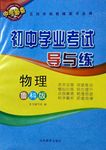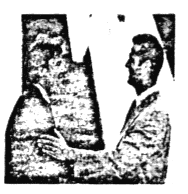
��������ѧУС����Elva����ɷ���ѧУ��������Frank��������������������������Frank�dz��Ȱ������˶������кܶ��˶����ģ���������������˶����ģ�������ϲ�����������ڷ�ѧ���ͬѧ��һ���������Ϊ�����˶�����Ȥ��������ʳҲ�ܽ������������߲ˡ�ˮ���ͼ�����Ҫ��
��1�����ʵ�����ϸ�ڣ���ʹ�������
��2��������50-60�ʣ���ͷ�Ѹ������������ܴ�������
��3��ע����д�������ۡ�
Hello, I'm the school reporter Elva. Today I will tell you something about the sports star Frank. _______________________________________________________________________________________________________________________________________________________________________________________________________________________________________________________________________________________________________________________________________________________________________________________________________________________________________________________________________
 ����ѧҵ���Ե�����ϵ�д�
����ѧҵ���Ե�����ϵ�д�
| �꼶 | ���пγ� | �꼶 | ���пγ� |
| ��һ | ��һ��ѿγ��Ƽ��� | ��һ | ��һ��ѿγ��Ƽ��� |
| �߶� | �߶���ѿγ��Ƽ��� | ���� | ������ѿγ��Ƽ��� |
| ���� | ������ѿγ��Ƽ��� | ���� | ������ѿγ��Ƽ��� |
��Ŀ������Ӣ�� ��Դ��2020�걱������ɽ���п���ģӢ���Ծ� ���ͣ���ѡ��
�� Mum, where is Dad?
��He________in the bedroom now.
A.sleeps B.slept C.is sleeping D.will sleep
�鿴�𰸺ͽ���>>
��Ŀ������Ӣ�� ��Դ��2020��4�½���ʡ�����и����о��꼶��ѧ�������ľ���һ����Ӧ��ѵ����һģ��Ӣ���Ծ� ���ͣ�����Ӣ������
����������˵�����������ɡ���
_______________________________________________
�鿴�𰸺ͽ���>>
��Ŀ������Ӣ�� ��Դ��2020��4�½���ʡ�����и����о��꼶��ѧ�������ľ���һ����Ӧ��ѵ����һģ��Ӣ���Ծ� ���ͣ���ѡ��
You are too late. The film for half an hour.
A.ends B.ended C.has ended D.has been over
�鿴�𰸺ͽ���>>
��Ŀ������Ӣ�� ��Դ��2020��4�½���ʡ�����и����о��꼶��ѧ�������ľ���һ����Ӧ��ѵ����һģ��Ӣ���Ծ� ���ͣ���ѡ��
һWhy didn't you tell him about the meeting?
һBecause he rushed out of the room ________I could say a word.
A.until B.after C.when D.before
�鿴�𰸺ͽ���>>
��Ŀ������Ӣ�� ��Դ������ʡ2018-2019ѧ�����꼶��ѧ�ڵ������¿�Ӣ���Ծ� ���ͣ��Ķ���ѡ

When you are talking about someone, but at that time you can't remember his or her name. What should you do then? Don't worry! In English, you can use other names to replace (����) their real (��ʵ��) names.
In the US, if you forget someone's name, you can just use the name John Doe for a man or Jane Doe for a woman. For example, "Did you see that boy who was running in the rain?" "Ah, yes, poor John Doe."
People use these names in US courts (��ͥ). This is to keep the person's identify (����) a secret (����). People use the name so often that there was even a film in 1941 called Meet John Doe.
But in the UK, unknown people are called John Smith. This name is used so often that John is one of the most common first name in English, and Smith is the most common family name.
So next time you forget someone's name, you know what to say.
1.When Americans can't remember a woman's name, they call her ________.
A.John Doe. B.Jane Doe. C.Jane Smith
2.John Smith is used among unknown people in ________.
A.America. B.the UK. C.Canada.
3.In US courts, people don't use real names because ________.
A.using real names is not allowed (����)
B.they think using real names may bring them bad luck
C.they just want to keep their identify a secret
4.The meaning of the underlined word "common" in paragraph 4 is ________.
A.��ͨ�� B.�ձ�� C.��ͬ��
5.The passage is mainly about ________.
A.why people sometimes can't remember others' names
B.differences in names between the UK and the US
C.the names American and British people use when they forget someone's name
�鿴�𰸺ͽ���>>
��Ŀ������Ӣ�� ��Դ������ʡ2018-2019ѧ�����꼶��ѧ�ڵ������¿�Ӣ���Ծ� ���ͣ���ѡ��
Cindy has a good eating habit. She always eats ________, so she is ________.
A.well; healthy B.well; health C.good; health
�鿴�𰸺ͽ���>>
��Ŀ������Ӣ�� ��Դ��2020��6�½���ʡ�����������꼶��ҵ����ѧ����ģ��Ӣ���Ծ� ���ͣ�������/Ӣ����ʾ���
Anna doesn't like watching films. Sometimes she does it________ (����)to relax.
�鿴�𰸺ͽ���>>
��Ŀ������Ӣ�� ��Դ��2020�����ɹŰ�ͷ����ѧ����ģ��Ӣ���Ծ� ���ͣ��Ķ���ѡ
It was a village in India. The people were poor. However, they were not unhappy. After all, their ancestors had lived in the same way for centuries.
Then one day, some visitors from the city arrived. They told the villagers there were some people elsewhere who liked to eat frog's legs. However, they did not have enough frogs of their own, so they wanted to buy frogs from other places.
This seemed like money for nothing. There were millions of frogs in the fields around, and they were no use to the villagers. All they had to do was to catch them. Agreement was reached, and the children were sent into the fields to catch frogs. Every week a truck arrived to collect the catch and hand over the money. For the first time, the people were able to dream of a better future. But the dream didn't last long.
The change was hardly noticed at first, but it seemed as if the crops were not doing so well. More worrying was that the children fell ill more often, and, there seemed to be more insects around lately.
The villagers decided that they couldn't just wait to see the crops failing and the children have to use the money earned to buy pesticides (ɱ���) and medicines. Soon there was no money left.
Then the people realized what was happening. It was the frog. They hadn't been useless. They had been doing an important job-eating insects. Now with so many frogs killed, the insects were increasing more rapidly. They were destroying the crops and spreading diseases.
Now, the people are still poor. But in the evenings they sit in the village square and listen to sounds of insects and frogs. These sounds of the night now have a much deeper meaning.
1.From paragraph 1 we learn that the villagers ________.
A.worked very hard for centuries B.dreamed of having a better life
C.were poor but pleased D.lived a different life from their ancestors
2.Why did the villagers agree to sell frogs?
A.The frogs were easy money. B.They needed money to buy medicine.
C.They wanted to please the visitors. D.The frogs made too much noise.
3.What might be the cause of the children's sickness?
A.The crops didn't do well. B.There were too many insects.
C.The visitors brought in diseases. D.The pesticides were overused.
4.What can we infer from the last sentence of the passage?
A.Happiness comes from peaceful life in the country.
B.Health is more important than money.
C.The balance between man and nature is important.
D.Good old days will never be forgotten.
�鿴�𰸺ͽ���>>
����ʡ������Υ���Ͳ�����Ϣ�ٱ�ƽ̨ | �����к���Ϣ�ٱ�ר�� | ����թƭ�ٱ�ר�� | ����ʷ���������к���Ϣ�ٱ�ר�� | ������Ȩ�ٱ�ר��
Υ���Ͳ�����Ϣ�ٱ��绰��027-86699610 �ٱ����䣺58377363@163.com